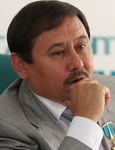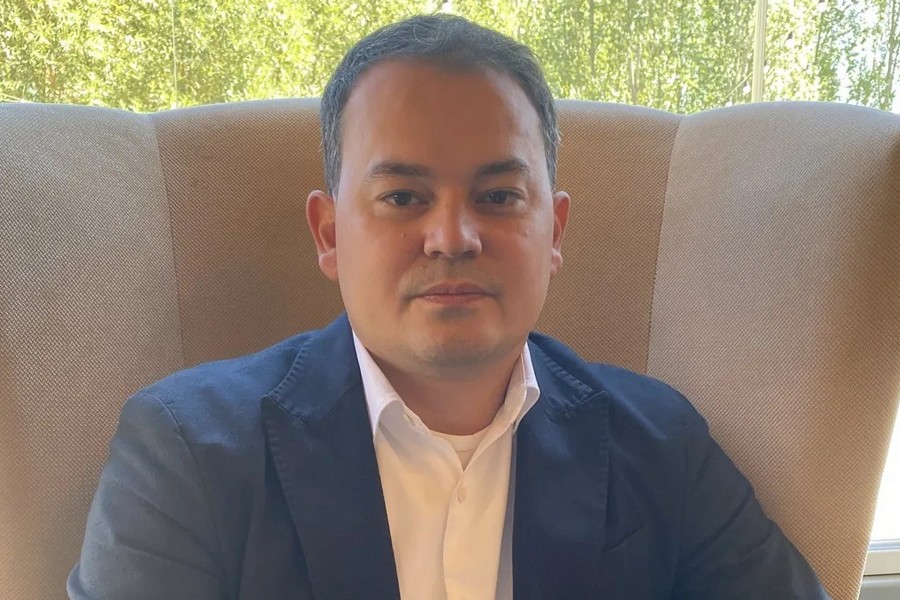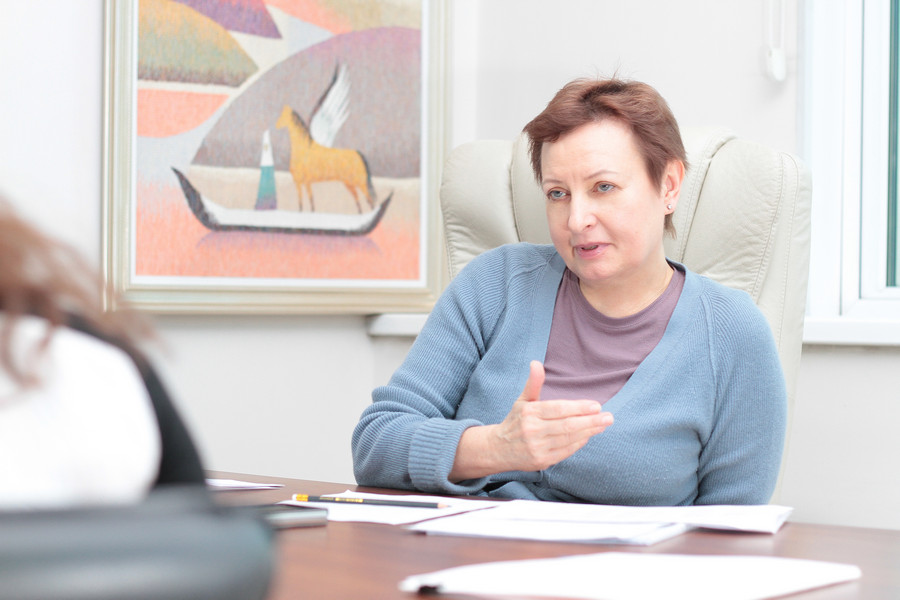Chairman of Aerospace Committee (Kazkosmos) Talgat MUSABAYEV:
KAZAKHSTAN WILL KEEP ITS SPACE SCIENCE PROGRAM RUNNING

On September 2, 2015, Kazakh cosmonaut Aidyn Aimbetov will be off on a mission to the International Space Station. The head of Kazkosmos Talgat MUSABAYEV talks about details of the upcoming space flight and development of Kazakhstan's space program.
- During the recent talks that you have led in Moscow on the upcoming space mission, the Kazakh astronaut Aidyn Aimbetov has been promoted to a flight engineer.
- As part of my working visit to Moscow, I met with the leadership of Roscosmos state corporation. The sides discussed the preparation for the mission of the Kazakh cosmonaut and the main scientific experiments planned during the space mission.
The highlight of the negotiations between the leaders of the Russian Space Agency and Kazkosmos was Aimbetov's promotion to the second flight engineer.
Manned space flights and scientific experiments in space are two important directions in Kazakhstan's space development programs. The space flight of the Kazakhstan cosmonaut is primarily aimed to continue scientific research based on the results received from the previously performed experiments in space on board of the ISS.
- The national research program is among the challenges to be faced by Aidyn Aimbetov during the flight. Tell us about its main focus and the nature of scientific experiments?
- Aidyn Aimbetov will be in control of a certain segment of the ISS and conduct the fifth national research program developed by the National Center for Space Research and Technology.
This program is a follow-up of the previous four space research programs and experiments that were carried out on board of the Mir orbital station and ISS in 1991 and in 1994, 1998 and 2001.
The objective of the fifth space research program is scientific experiments on board of the ISS to obtain new fundamental data and results applicable for solving social and economic problems and introducing high-tech space technology to boost Kazakhstan's economy.
The program encompasses several areas of work, namely, natural resources and geophysical monitoring, surveying ecologically sensitive areas of Kazakhstan (the Aral Sea, monitoring of dust storms in the Aral Sea, oil spills in the Caspian Sea) to assess pollution impact on ecosystems, climate change dynamics in ecologically sensitive areas of Kazakhstan and measuring vulnerability to natural hazards.
The Al-Farabi University will conduct the research of physical properties of charged microparticles in microgravity to obtain spatially ordered structures, so-called Coulomb crystals. The results of the research could be applicable in fusion energy, plasma medicine, production of new nanocomposite materials and nanoscale instrumentation.
Scientists of the Kazakh Academy of Nutrition will offer a new space food menu to the ISS crew with high nutritional and biological value and improved medical and biological properties.
Within the space biomedicine and biotechnology research, the scientists will study the astronaut performance in space flight, his psychophysiological state in stressful conditions and antigravity effect on the human body. The results will be used in healthcare, sports medicine and anti-doping analysis.
- Will Kazakhstan continue manned space flights and form its own corps of cosmonauts?
- There is no doubt, we will continue developing our scientific space programs in the future.
- In 2007, Mukhtar Aimahanov and Aidyn Aimbetov completed training at the Gagarin Cosmonaut Training Center. In 2012, Aymahanov received Russian citizenship, and joined the corps of Russian cosmonauts.
- Receiving the nationality of the Russian Federation was Aymahanov's personal decision.
- How much progress Aidyn Aimbetov has made in his training to fly to the ISS?
- Aidyn Aimbetov previously completed a course of general space training. He is currently engaged in team training as a new crew member at the Russian Cosmonaut Training Center. Everything goes according to plan.
- The launch of Soyuz TMA-18M spacecraft has been shifted from September 1 to September 2. Can you reveal some more details about the launch?
- Roscosmos officially informed us that in accordance with the ISS flight program for 2015, the launch of Soyuz -TMA spacecraft with VC-18 crew is scheduled for September 2, 2015 at 10:30 a.m. Astana time.
Astronauts have a tradition not to disclose any information before the flight. More comments will follow after a successful launch.
- The launch of Soyuz TMA-18M with the Kazakh cosmonaut Aidyn Aimbetov on board is a milestone for our country. What media outlets will get access to cover the story?
- By July 30, 2015 Kazkosmos has completed accreditation for the Kazakh media. The list of mass media representatives has been submitted to the Russian Space Agency to issue access passes for journalists to attend Baikonur facilities.
- According to recent reports, the flight of Aidyn Aimbetov will cost the country $20 million. Has the relevant agreement been sealed and when Kazakhstan is planning to make the payment?
- The Russian Space Agency and Kazkosmos have signed a draft agreement for a short-term flight of the Kazakh cosmonaut that stipulates 2016 as the due date of payment.
The mechanisms of financing of the upcoming flight into space are currently being discussed at the government level.
- Thank you for the interview!
August, 2015
© 2025 Interfax-Kazakhstan news agency
Copying and use of these materials without reference to the source is prohibited
Archive





